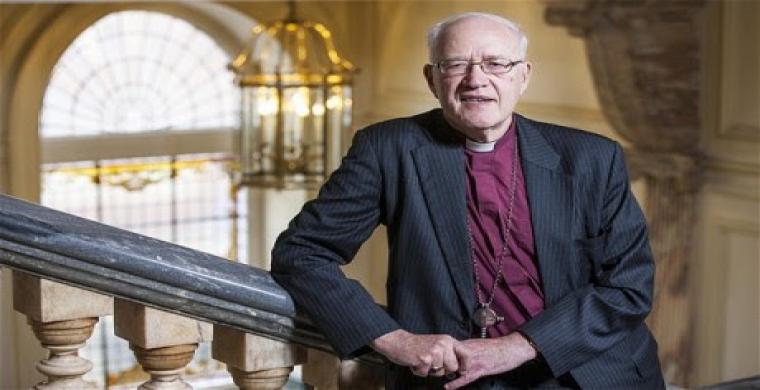Assisted dying: George Carey has forgotten Christian teaching on the value of human life
Lord Carey says it would not be ‘anti-Christian’ to change the law
Bishop Michael Nazir-Ali
THE TELEGRAPH
http://blogs.telegraph.co.uk/
July 14th, 2014
Lord Carey says it would not be ‘anti-Christian’ to change the law
I yield to no one in my respect for Archbishop George Carey and for the good things he has said and done, but I am simply amazed at his arguments (or lack of them) in support of Lord Falconer's Assisted Dying Bill for the terminally ill.
Archbishop Carey's piece in the Daily Mail is an emotionally charged one. He claims that he has changed his mind after encountering the cases of Tony Nicklinson and Paul Lamb, who had severe paralysis but were not terminally ill. In what way do these cases support a Bill specifically for those with a life expectancy of six months or less?
The vast majority of those who are terminally ill want what Dr Peter Saunders, of the Christian Medical Fellowship, calls "assisted living" rather than "assisted dying". This is what the Christian-inspired Hospice movement seeks to do, enabling those nearing the end of their lives to prepare for a peaceful and good death. The fact that good hospice care is still a postcode lottery is what should shame us, rather than not having an answer to Dignitas in Switzerland,as Dr Carey claims.
Instead of concocting expensive ways of getting rid of those at their most vulnerable, we should be making sure that good hospice care is evenly available across the length and breadth of the country.
Archbishop Carey, rightly, points out that where assisted dying (by any name) has been permitted, it has led to a widening of the provision beyond the terminally ill to those who are disabled, depressed or just tired of life. he says that it would be "outrageous" if assisted dying were to be extended to such categories in this country. But the cases on which he relies show precisely how the arguments will not remain for the terminally ill alone but will be extended to others. He is then opening the way for the very developments he fears.
For these and other reasons, nearly the whole of the medical profession, experts in palliative care and disability groups are united in their opposition to this Bill. Archbishop Carey can refer only to the odd editorial and to a physician with no experience of caring for the terminally ill in support of his case.
There is no exact science about who is dying and when they are going to die. Archbishop Carey knows as well as I do that people who have been given six months, or less, to live sometimes live for years. Who will be responsible for premature deaths, if Falconer's Bill becomes law?
There is no discussion in Archbishop Carey's article of what the medical profession, the carers and the disabled, themselves, think of this Bill. Even more worryingly, there is nothing here about Christian teaching on the value of the human person, the duty of care and the prohibition on killing, especially the elderly. It is true, of course, that "thou shalt not kill" does not mean officiously keeping alive at all costs.Patients can refuse treatment and doctors can withdraw it if it is ineffective, unduly intrusive or unbearably painful. Carey confuses the death which may come about as a result of attempts to relieve pain (rare though that is) with intentionally assisting someone to die. The all important word here is "intention". What is intended, relief of pain, or the death of a patient?
However moving his experience may have been, it cannot be determinative in deciding this matter. Here we have to take account not just of hard cases but the vast majority of the disabled, the elderly and the vulnerable. They cannot be left at the mercy of an ever-widening circle of those thought eligible to die by those who manipulate public opinion. We need here the objective criteria of the value of a human life, the need to relieve suffering and to honour the medical profession's role in preserving life not destroying it.
I continue to call Archbishop Carey a friend and I hope he will continue to see me as a friend also, but for the sake of the weakest in our society, we cannot allow the announcement of his support for Lord Falconer's Bill to go unchallenged.
There is talk, at the moment, about setting up a Royal Commission to consider this whole matter. This could be a positive development as it will allow all sides to contribute. Such a Commission must be genuinely representative of expert opinion in this area and it will have to take account of what the Judaeo-Christian tradition teaches about the human person. It is this on which our values are based. Oh that Archbishop Carey had attended to it more thoroughly than he has.
END














